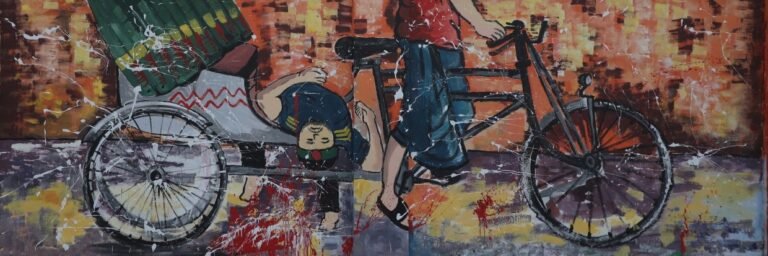The UN human rights office (OHCHR) has found evidence of “serious human rights violations and abuses” in Bangladesh between July 15 and August 5 in Bangladesh.
A fact-finding report on human rights violations and abuses related to the July uprising, which was launched earlier today in Geneva, states that the Awami League regime “and its security and intelligence apparatus, in coordination with violent elements linked to the Awami League, systematically engaged” in these violent acts.
“Violations were committed with the knowledge, coordination and direction of the political leadership and senior security sector and intelligence officials.”
“The brutal response was a calculated and well-coordinated strategy by the former government to hold onto power in the face of mass opposition,” said UN Human Rights Chief Volker Turk. “There are reasonable grounds to believe hundreds of extrajudicial killings, extensive arbitrary arrests and detentions, and torture, were carried out with the knowledge, coordination and direction of the political leadership and senior security officials as part of a strategy to suppress the protests.”
“The testimonies and evidence we gathered paint a disturbing picture of rampant State violence and targeted killings, that are amongst the most serious violations of human rights, and which may also constitute international crimes. Accountability and justice are essential for national healing and for the future of Bangladesh,” he added.
The UN report says, “The intelligence services —NSI, NTMC and the Armed Force’s DGFI — and the specialised branches of the Police – Detective Branch, Special Branch and also Counter Terrorism and Transnational Crime (CTTC) – engaged in widespread human rights violations of their own to support the violent suppression of the protest movement.”
“All of them provided intelligence to guide the mass arbitrary arrest campaign in late July, including based on unlawful mass surveillance measures obtained through the NTMC.”
It further reads, “DGFI, NSI and Detective Branch obstructed lifesaving medical care when they deployed to hospitals to collect information about injured protesters, arrested patients and intimidated medical care providers.”
Launching the report earlier today, the UN said, “Based on deaths reported by various credible sources, the report estimates that as many as 1,400 people may have been killed between 1 July and 15 August, and thousands were injured, the vast majority of whom were shot by Bangladesh’s security forces.”
Of these, as many as 12-13 percent of those killed were children. Bangladesh Police reported that 44 of its officers were killed. The report finds that 76% of the deaths were caused by military rifles and another 12% by shotgun pellet injuries.
The report states that, “Former senior officials directly involved in handling the protests and other inside sources described how the former prime minister and other senior officials directed and oversaw a series of large-scale operations, in which security and intelligence forces shot and killed protesters or arbitrarily arrested and tortured them.”
The report found patterns of security forces deliberately and impermissibly killing or maiming protesters, including incidents where people were shot at point-blank range.
“The best way forward for Bangladesh is to face the horrific wrongs committed during this period, through a comprehensive process of truth-telling, healing and accountability, and to redress the legacy of serious human rights violations and ensure they can never happen again,” said Türk while launching the report. “My Office stands ready to assist in this vital national accountability and reform process.”



